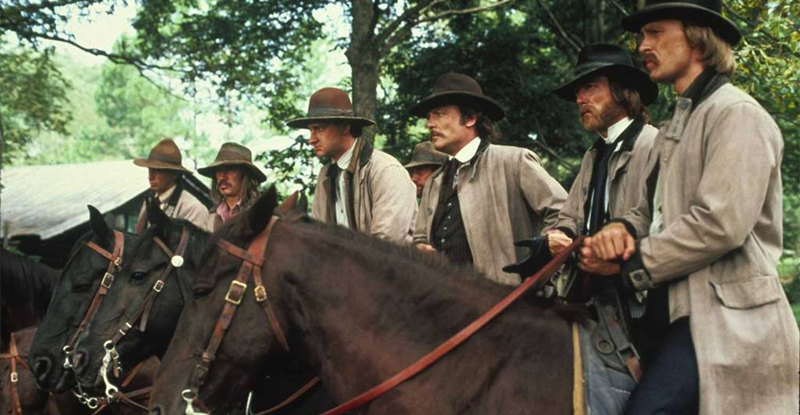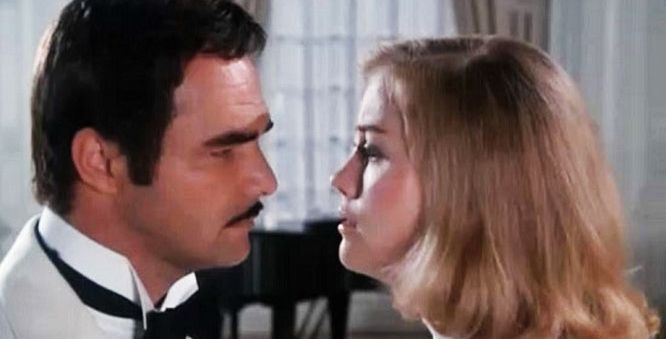Anne: “What would you say if no one came to your funeral?”
Georges: “Nothing, presumably.”
That line provides one of the few light moments in“Amour,” a drama in French by Austrian director Michael Haneke that became one of 2012’s most lauded films. It depicts two octogenarians—cultured, upper-class Parisians—who struggle to cope after one of them suffers a stroke and surgery only makes matters worse.
Hemingway once wrote that “all stories, if continued far enough, end in death, and he is no true-story teller who would keep that from you.” But in “Amour,” as a now-successful musician and former student of Georges and/or Anne remarks following a visit, spending time with them is an experience that’s both rewarding and sad—sadness predominating.
Haneke relies mostly on long takes featuring close-ups and medium shots, with long shots serving as transitions or used to suggest theme or content worth pondering. Near the beginning, for example, we see a shot of an audience seated inside a theater, filmed from the stage. Normally it would be a brief point-of-view shot, but here it continues for a long time and seems meant to suggest that the audience (or at least two of its members) will be the focus for the duration of the film, not performers. Later Haneke decides to fade to black and stay there for a while before introducing ambient noise and snippets of dialogue, which would seem to suggest both the blackness of their situation and death’s dark finality.
At 85, Emmanuelle Riva became the oldest nominee for Best Actress in Oscar history, and though she failed to win she did earn a Best Leading Actress award at the BAFTAs, and “Amour” won the Oscar and a Golden Globe for Best Foreign Language Film. Riva’s co-star, Jean-Louis Trintignant, did not receive the same outpouring of praise for his performance, but I found it to be every bit as deep and sensitive as Riva’s.
This character-driven drama feels about as real-time as modern cinema gets—partly because of those long takes, and partly because Haneke emphasizes the mundane. We watch Georges as he struggles with such day-to-day tasks as lifting his wife and positioning her in bed or on a chair, spoon-feeding her, or being shown by a nurse how to “diaper” the love of his life. It’s sad when it comes to that, but Haneke won’t let the audience turn away. In perhaps one of the most moving scenes, Georges (and the audience) watches from afar as a new occasional nurse he hired is insensitive to Anne as she bathes her with water that’s too hot and causes her to repeatedly cry, as best the old woman can, “Hurts!”
Although some scenes feature brief appearances by visitors, neighbors, or the couple’s daughter (Isabelle Huppert), “Amour” is a really a two-person film that explores love’s final phase. Extremely well done, it will set you to thinking about people you’ve lost, people you’re going to lose . . . or even yourself. It’s a bit of a gut-punch, and there’s no sentimentality here to cushion the blow.
“Amour” has a runtime of 127 minutes and is rated PG-13 for “mature thematic material, including a disturbing act, and for brief language.” To that you can add brief (and very subtle) nudity.
Video:
Most of the action takes place in low-lit interiors, so “Amour” isn’t a showcase for high definition. There’s a thin layer of film grain throughout, and colors seem either muted by the light or deliberately chosen for their somber palette. One challenge in such light would have been the deep focus shots that show several rooms at a time, but the level of detail was just fine. “Amour” is presented in 1.85:1 widescreen, and I noticed no compression issues or excessive DNR as a result of the AVC/MPEG-4 transfer.
Audio:
When the screen goes black and stays black for what seems an eternity, you wonder if the movie stopped until you hear sound gradually fill the void. Then you really begin to appreciate the film’s crisp silences, and the way in which the French (Parisian) DTS-HD MA 5.1 accurately captures the smallest sounds of daily life. Surprisingly, since this is a film about two retired music teachers, Haneke made the decision not to have a musical backdrop, and so those silences and situations aren’t softened one bit. Subtitles are in English and English SDH.
Extras:
Two bonus features are included: a standard making-of documentary that runs just under a half-hour, and a Q&A with the director. The documentary is more fly-on-the-wall than anything overly scripted, with the usual blend of behind-the-scenes footage and talking heads interviews. The bonus feature is in French and German with English subtitles.
Bottom line:
Michael Haneke gives us an unflinching look at love in the twilight years, placing a lot on the shoulders of two stars who come through like the veterans they are. “Amour” will seem sad and depressing to many viewers, but it’s as honest as can be.


